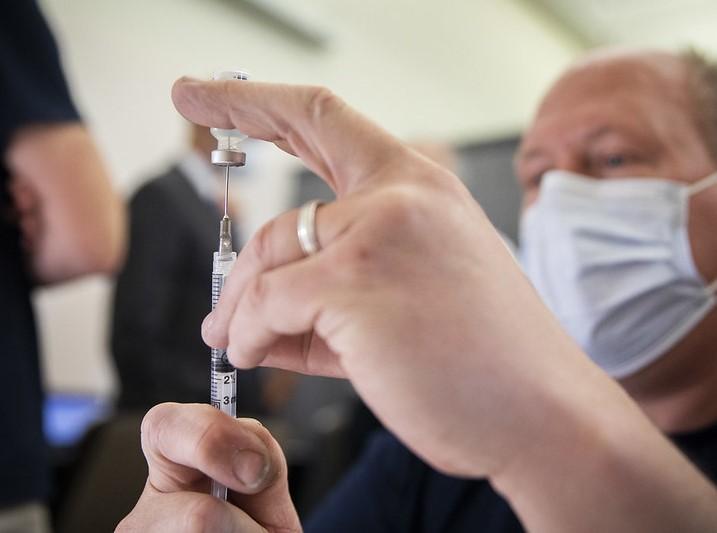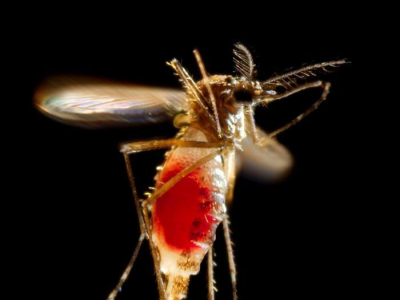The odds of long COVID-19 fall by more than half after two doses of vaccine, the risk of hospitalization drops by more than two-thirds, and breakthrough infections are nearly twice as likely to be asymptomatic, according to a UK study yesterday in The Lancet Infectious Diseases.
The prospective case-control study, led by King's College London researchers, analyzed data from 1,240,009 UK adults 18 years and older using a cell phone app to report infection status. Users had received a first dose of COVID-19 vaccine 14 or more days after the first dose or 7 or more days after their second dose, from Dec 8, 2020, to Jul 4, 2021.
The users were matched 1:1 with two control groups, one reporting a negative test within 14 days of their first dose and one reporting a negative test 7 or more days after the second dose. A subgroup analysis compared the results with those of two unvaccinated groups.
Breakthrough infections tied to frailty, poverty
Of the 1,240,009 app users reporting a first vaccine dose, 6,030 (0.5%) later tested positive for COVID-19. Of the 971,504 users who had received a second dose, 2,370 (0.2%) were later diagnosed as having COVID-19.
Risk factors tied to breakthrough COVID-19 infection after the first vaccine dose included frailty in adults 60 years and older (odds ratio [OR], 1.93) and residence in areas of high deprivation (OR, 1.11). Body mass index less than 30 kg/m2 (nonobesity) was associated with lower odds of infection after the first dose (OR, 0.84).
The odds of hospitalization fell by about 70% after one or two doses, the chances of severe disease (having five or more symptoms in the first week of illness) dropped by about one-third, and the likelihood of having long COVID-19 (symptoms for at least 28 days after infection) was halved.
Infected vaccinated users reported symptoms such as fatigue and cough less often than infected unvaccinated users, and the vaccinated were more likely to have no symptoms—particularly if they were 60 years or older—than the unvaccinated. The chances of asymptomatic infection after one vaccine dose rose 63%, increasing to 94% after the second dose.
In a King's College London press release, study coauthor Tim Spector, PhD, said that vaccinations lower the odds of long COVID-19 by reducing the risk of any symptoms by 8- to 10-fold and by halving the chances of those symptoms lingering. "Whatever the duration of symptoms, we are seeing that infections after two vaccinations are also much milder, so vaccines are really changing the disease and for the better," he said. "We are encouraging people to get their 2nd jab as soon as they can."
The study authors urged targeting at-risk populations for COVID-19 vaccination and infection-control measures. "Our findings might support caution around relaxing physical distancing and other personal protective measures in the post-vaccination era, particularly around frail older adults and individuals living in more deprived areas, even if these individuals are vaccinated, and might have implications for strategies such as booster vaccinations," they wrote.
Prioritizing at-risk groups for vaccines
The findings are especially important amid rising global COVID-19 case counts due to the highly transmissible Delta variant, study co-lead author Claire Steves, PhD, said in a Lancet press release.
"Breakthrough infections are expected and don't diminish the fact that these vaccines are doing exactly what they were designed to do—save lives and prevent serious illness," she said. "We can greatly reduce that number by keeping people out of the hospital in the first place through vaccination.
"Our findings highlight the crucial role vaccines play in larger efforts to prevent COVID-19 infections, which should still include other personal protective measures such as mask-wearing, frequent testing, and social distancing."
The elevated risk of breakthrough infections among participants living in deprived areas could be due to factors such as crowded housing and lower vaccinations rates, the researchers said.
"These groups are at a greater risk of exposure and are therefore more vulnerable to infection," coauthor Rose Penfold, BMBCh, of King's College London, said in the Lancet release. "Health policies designed to prevent infections, including policies around timing between the first and second dose and potential booster shots, should prioritize these groups."




















